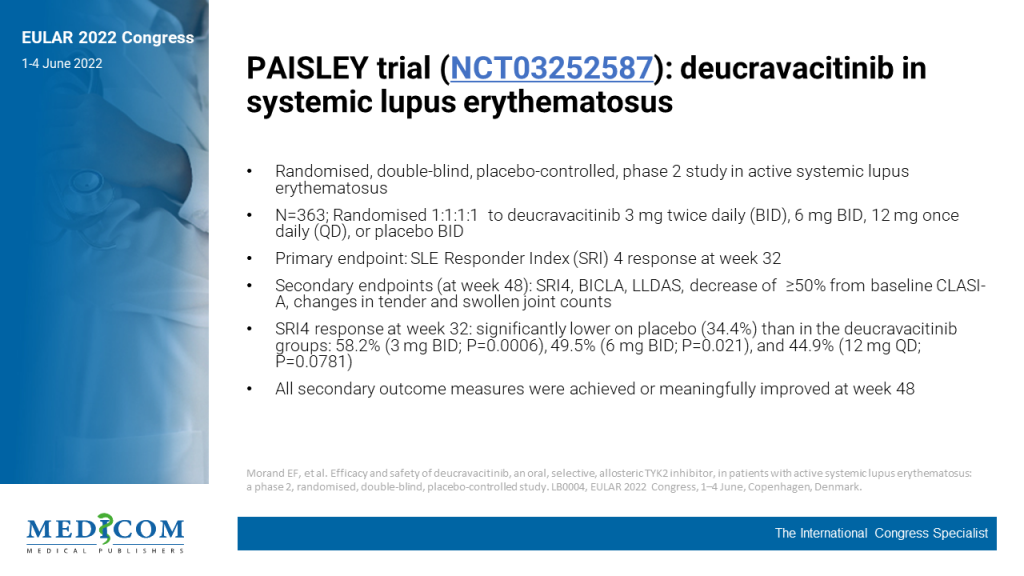Not immunosuppressive therapy per se, but treatment with targeted therapy demonstrated a significant protective effect on mortality or worsening in patients with systemic sclerosis (SSc) and pre-capillary pulmonary hypertension (precapPH). As these new results are based on registry data, randomised-controlled trials are now suggested for further evaluation.
A retrospective observational study was performed to gain insight into the possible benefit of targeted DMARDs on precapPH-complicating SSc [1]. SSc patients from the EUSTAR registry with data on their immunosuppressive therapy and results from a right heart catheter that fulfilled the haemodynamic criteria for precapPH were included. The analysis focussed on death or a predefined worsening of precapPH as the outcome, comparing patients with or without immunosuppressants. It also took into account a wide variety of potentially confounding covariates regarding risk stratification, among them gender, age, lung function, cardiac insufficiency markers, renal history, and medication levels.
Out of 755 patients, 82% were women, the mean age was 63 years, 29% had diffuse cutaneous SSc, and SSc with precapPH was present over a mean of 11 years. Half were treated with immunosuppressants, and 94% in this group had ≥1 conventional synthetic DMARD.
After a follow-up of 2.9 years, 72% had either died or experienced an event of pulmonary worsening. “These events were numerically higher in the immunosuppressants-exposed group, both for the combined outcome or for the separate (death or precapPH worsening) outcomes,” Dr Cosimo Bruni (University Hospital Zurich, Switzerland) described.
Primarily, the Cox-regression modelling failed to find significance in the effect of immunosuppressants overall (P=0.551). However, after stratification according to the type of treatment, targeted therapy demonstrated a significant effect (P=0.021) on protection against the combined outcome of death or precapPH worsening. As the presence or absence of interstitial lung disease (ILD) might have influenced this result, a further categorisation was performed that again yielded significance for targeted therapies (P=0.026), confirming that the effect was independent of ILD. “The signals that we noted were mostly related to tocilizumab, having a statistically significant protective effect, and a trend was also noted for rituximab,” Dr Bruni further specified.
“Now, randomised clinical trials exploring targeted therapies should be designed using long-term morbidity and mortality outcomes to validate our results further and possibly improve the care of our patients,” Dr Bruni recommended in his conclusion.
- Bruni C. Immunosuppression with targeted DMARDS reduces morbidity and mortality in pre-capillary pulmonary hypertension associated with systemic sclerosis: a EUSTAR analysis. OP0238, EULAR 2023, 31 May–3 June, Milan, Italy.
Copyright ©2023 Medicom Medical Publishers
Posted on
Previous Article
« In patients with PsA, inflammation extends to the vascular bed Next Article
Inhibitors of IL-17 or TNF equally effective on radiographic progression in axSpA »
« In patients with PsA, inflammation extends to the vascular bed Next Article
Inhibitors of IL-17 or TNF equally effective on radiographic progression in axSpA »
Related Articles

June 4, 2022
Downloadable 1-Page Selected Trial PowerPoint Slides
September 29, 2021
Live varicella-zoster vaccine safe, effective with TNF inhibitors
© 2024 Medicom Medical Publishers. All rights reserved. Terms and Conditions | Privacy Policy

